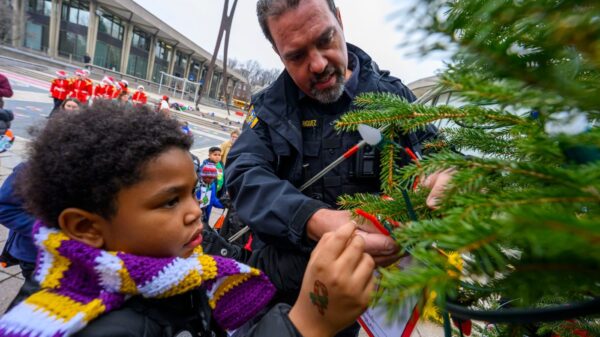The emotional distance created by a daughter-in-law has left a mother feeling heartbroken and confused. In a heartfelt letter to relationship columnist Annie, a mother, referred to as Boy Momma, expressed distress over her son’s wife, who has become increasingly distant over their six-year marriage. The situation has caused significant strain within the family, leaving both parents feeling sidelined.
In her letter, Boy Momma described her efforts to build a relationship with her daughter-in-law, emphasizing their kindness and support. Despite these gestures, the daughter-in-law maintains a cold demeanor and has made it clear that she prefers not to be referred to as a daughter, stating, “No, thank you. I already have a mom and dad.” This rejection of the title has deeply hurt Boy Momma and her husband, who believed in the idea of welcoming more love into their family.
The tension has not gone unnoticed by others, as friends and family have commented on the daughter-in-law’s behavior. Boy Momma noted that despite their attempts to respect her boundaries and refrain from meddling, the daughter-in-law continues to express grievances that seem unfounded. The situation has escalated to the point where Boy Momma has considered seeking therapy to manage her anxiety and emotional distress.
Understanding Family Dynamics
In her response, Annie underscored the importance of recognizing the feelings of all parties involved. She suggested that the daughter-in-law might have different boundaries and that her refusal of the title could be an expression of her desire to maintain her identity. Annie advised Boy Momma to initiate a gentle conversation with her son, encouraging her to express her feelings without placing blame.
This approach allows for a more open dialogue, where Boy Momma can inquire about the reasons behind the distance. It is crucial to foster a harmonious relationship, and understanding the dynamics at play may provide clarity.
Additionally, seeking the guidance of a therapist can be beneficial, not as an indication that something is wrong, but as a way to develop effective communication strategies and support emotional well-being. Annie emphasized that every family dynamic is unique, and with time and mutual understanding, relationships can improve.
Seeking Resolution and Support
The story highlights a common challenge many families face when merging different backgrounds and personalities. It serves as a reminder that open communication can pave the way for healing and understanding. Boy Momma and her husband may find that addressing their concerns directly with their son could lead to a more supportive family environment.
As families evolve, navigating these relationships can be complex. The key lies in compassion, patience, and a willingness to listen. By fostering dialogue and understanding, families can work towards resolving tensions and rebuilding connections that may feel strained.
In the end, it is essential for all members of a family to feel valued and heard, ensuring that love and support remain at the forefront of their relationships.








































































